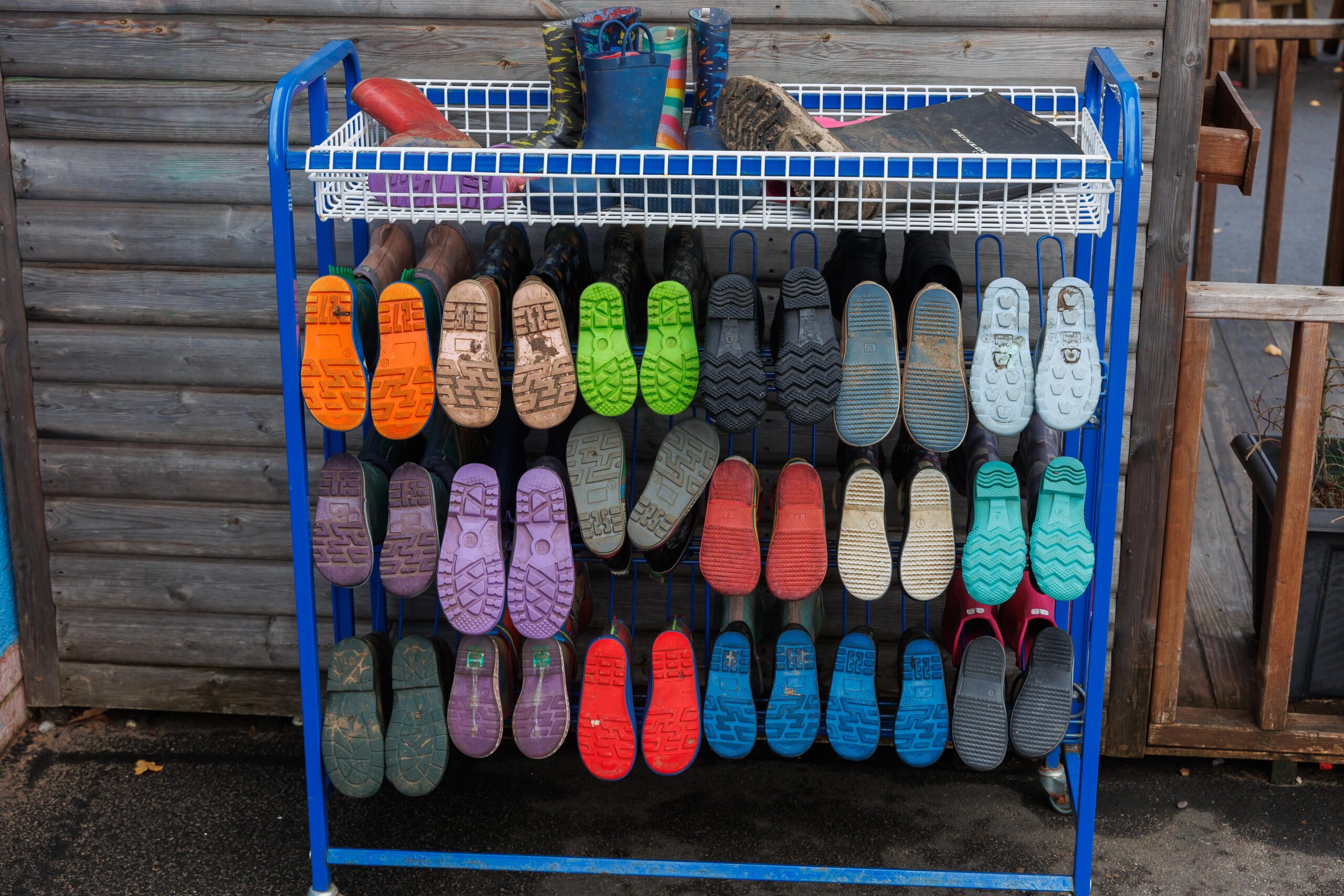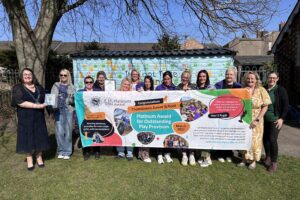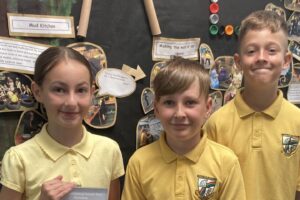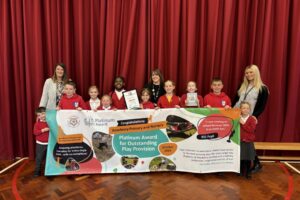
Archibald First School
- Date February 21, 2025
“I cannot emphasise how incredible it is seeing our children from Reception to Year 4 actively playing and engaging with each other.”
Before OPAL, we thought our playtimes were fun times. Over the last year or so, we had invested in playground equipment and this was available for the children to use. On reflection, our playtimes were okay but they are SO much better now!
Children’s favourite play opportunities now include being able to go onto our grassed area every day and playing hide and seek in the bushes, den building where they create huge structures and stand on the top of them, and the Duplo area – a huge hit with the year 4 children.
Some of the impacts we have seen since improving our playtimes are:
- Children are less likely to seek adult attention for minor first aid when they have fallen. They are also less likely to complain about friends falling out.
- The majority of children are physically active and there are more opportunities for building strength – eg climbing structure, den building, lifting heavier objects.
- Children from different year groups play together and they use their imagination – eg creating their own songs and dances on the stage or making assault courses.
- Children take more risks and are happy with their achievements – eg building towers to jump from, building structures from Duplo or wooden blocks or balancing on stilts.
Play is definitely more inclusive now.
At the start we had a higher number of children who required one-to-one support when outside. Fewer now need this as, throughout their OPAL journey, they have developed their play skills. We have had children with cerebral palsy who are wheelchair dependent and they have loved playtimes with their friends.
Children who previously found playtimes challenging now join in with a range of activities. For example, one of our younger children would stand at the edge of the playground, holding his ears and not joining in at all. Now he draws on the chalkboards, rides a scooter, builds with the Duplo and plays in the water.
Our parents are very supportive and they always have been – we are very lucky.
With regards to our OPAL journey, our parents have responded really well to our pleas for donations so we have to say a huge thank you to them. They are incredibly positive and comment on the provision and, most importantly, how their children talk about the fun they had had.
The staff would use a lot of positive adjectives (about playtimes). The timetabling can be a pain due to staffing changes, trips, absences etc but the school team are brilliant and always work together to find a remedy as quickly as possible. They are a fabulous team!
We have seen a decline in accidents and incidents at playtimes.
Prior to the start of OPAL we would be giving out a lot of ‘wet paper towels’, spending time focusing on friendship issues and minor fallouts and teachers often spent the first ten minutes of the next lesson further addressing incidents. This is no more… The number of genuine accidents has not decreased but the number of incidents and complaints has dramatically decreased.
The children simply want to play; they have become more resilient in their relationships; have a wider range of peers to play with and there is a genuine level of understanding that we can all play what we want.
Our community has really come together.
OPAL is led by two of our teaching assistants (one a qualified teacher and the other an HLTA). The amount of work that they have put in has been commendable and this has been recognised by all the other staff who in turn work hard to make it a success.
Our lunchtime supervisors are fully on board, being a part of the OPAL team and regularly feeding back about our provision at lunchtime. They have taken ownership of OPAL and work the rotas between themselves when inevitably things change such as staffing.
Visiting headteachers and other professionals have also commented positively on our breaks and lunchtimes, and we have even shown other school staff who are considering embarking on OPAL around our school.
The impact on our children is the most crucial part.
I cannot emphasise how incredible it is seeing our children from Reception to Year 4 actively playing and engaging with each other. We have established a wide range of zones/opportunities, so there really is something for everyone!
Their imaginations come alive through their play, they are increasingly becoming more responsible for equipment and they have ideas on how we can develop our provision even further. The biggest result has been the decrease in what we call the ‘whingeries’ – the children bounce back from any trip or minor scuff eager to play and to be with their friends!
Becky Turner, Headteacher, Archibald First School
Tag:Case Study
You may also like

Thomlinson Junior School, West Cumbria

Fatfield Academy, Washington, Sunderland
